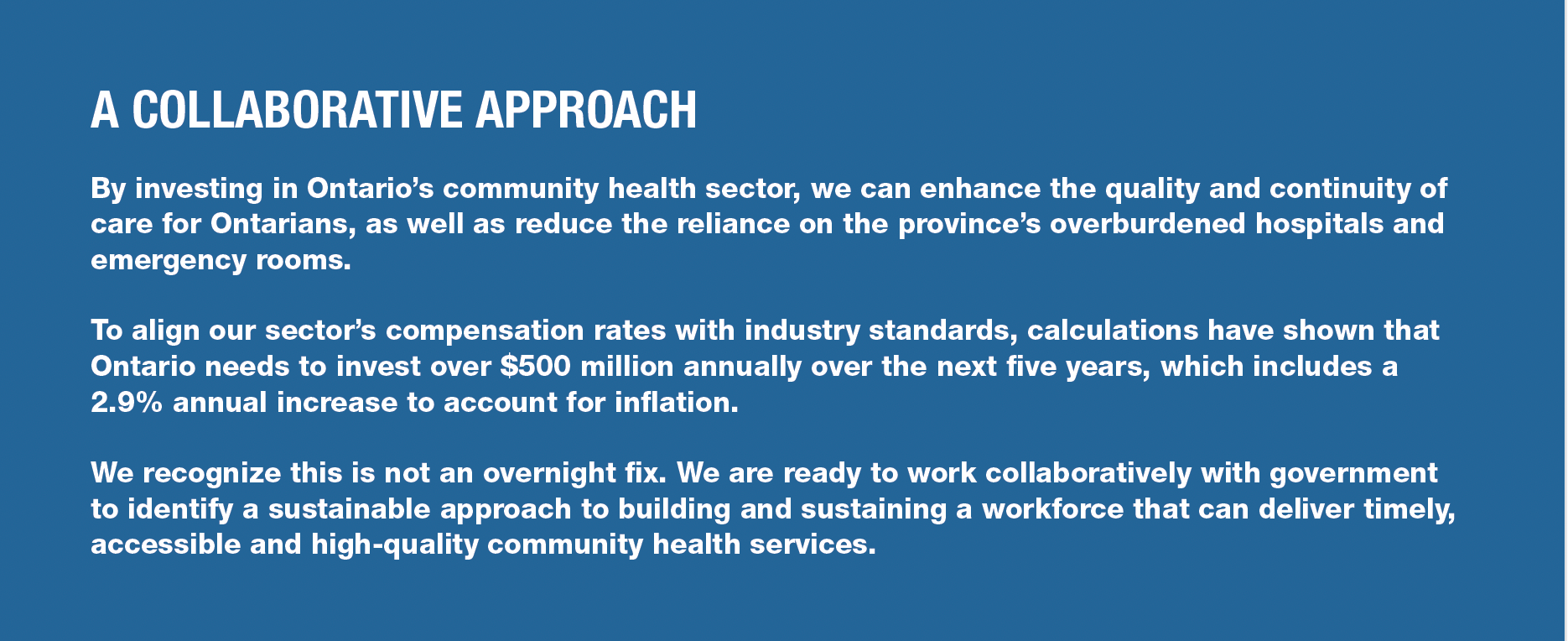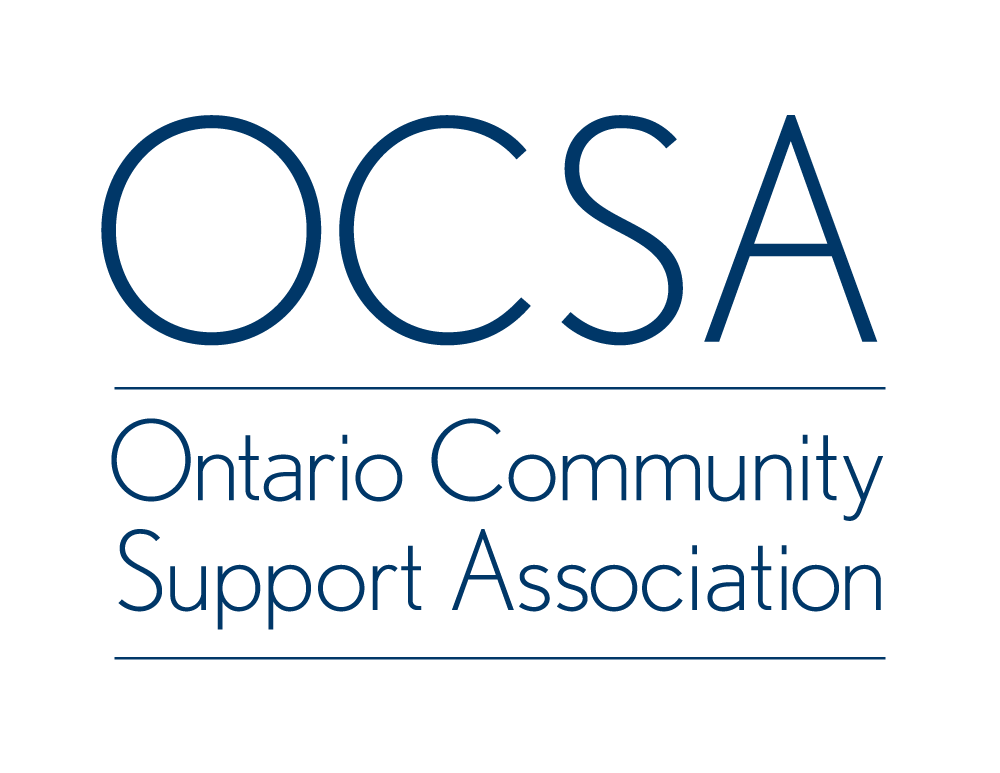Ontario’s Community Health Sector Pre-Budget Submission 2024-25

(Toronto, Ontario. January 16, 2024.) As representatives of 10 provincial community health care associations, spanning 1,300 member agencies, Ontario’s community health sector welcomes the opportunity to participate in Ontario’s pre-budget consultation process. This provincial budget comes at a critical juncture in Ontario’s health care system as the government continues its work to ensure Ontarians can connect to the care they need where they need it most, providing faster access to services, and growing the province’s health care workforce.
Notwithstanding these important commitments, Ontario’s community health sector is facing a critical staffing crisis, stemming from a widening wage gap between community health care workers and health workers in other sectors. The wage gap has resulted in the community health sector lagging behind by more than $2 billion, compared to those doing similar work in hospitals and other sectors. As a result, the community health sector is witnessing an exodus of skilled workers to other fields, making it increasingly challenging to recruit and retain essential health workers.
The community health workforce encompasses a range of specialized health care roles, including nurse practitioners (nurses) in primary care, addiction and social workers in mental health organizations, and personal support workers in home and community care and long-term care. This multifaceted workforce cares for patients with highly complex needs that often have multiple severe and chronic conditions, and many patients face barriers to accessing health equitably. These healthcare workers often provide 24/7 service delivery, all while working with limited resources relative to acute care facilities.
These workers play an essential role in Ontario’s health care system, ensuring patients receive the right care in the right place. Through a social determinant of health approach and a focus on prevention, where possible, our workforce also aids in reducing the burden on acute care settings, such as hospitals and emergency departments.
Action from the Ontario government is needed to close this gap and secure the stability of Ontario’s health care system.
PAY PARITY IN CONTEXT
A new report, the Ontario Community Health Compensation Market Salary Review, presents compensation trends, challenges, and gaps from a study of market compensation within the community health sector.
The report underscores several key findings:
- The community health sector is experiencing significant staffing challenges, including high turnover rates, minimal compensation increases, severe staffing shortages in rural areas, and limited growth opportunities.
- Compensation emerges as the most pressing labour challenge.
- Benchmark jobs in the community health sector are compensated significantly less than similar roles in Ontario’s broader public sector, including hospitals, acute care, and the education sector.
Multiple factors contribute to the existing wage gap between community health workers and their counterparts in other health sectors within Ontario. These factors include a lack of investment and funding into the community health sector, legislative compensation restraints particularly imposed by Bill 124, and the rising wages in other health care sectors.

2023 AUDITOR GENERAL’S REPORT
The community health sector frequently serves as the initial point of contact for patients within the health care system, delivering essential and accessible care for Ontarians in their communities and homes. Our sector helps to prevent, manage, and treat various health issues such as chronic diseases, mental health, substance use and social determinants of health.
The findings from the Ontario Community Health Compensation Market Salary Review are in line with the 2023 Auditor General’s report, which highlighted the continued pressures faced by Ontario’s hospitals and emergency departments. However, without substantial investments in community care, the burden on Ontario’s hospitals will increase exponentially. The Auditor General recommends, among other measures, increasing the capacity and availability of community resources to ensure patients receive the care they need in a timely manner and in the most appropriate setting.
The Auditor General’s report also highlights the significant consequences of the pay disparity in long-term care settings, a finding that is consistent with the data from our recently conducted compensation review. The report discusses how the pay disparity between homes and other health care settings has contributed to higher turnover and staff vacancies, which we have seen first-hand.
While the government has committed to strengthening the community health sector, and we acknowledge the actions taken to date, the growing wage gap threatens our ability to deliver the community services Ontarians need and deserve, including primary care, home care, mental health and addictions care, and long-term care, and will impact the ability of the government to achieve its goals in the health system, overall.

CONCLUSION
The community health workforce remains steadfast in its commitment to supporting the health and well-being of Ontarians. However, in light of the rising cost of living, a sustainable approach to addressing the wage gap is critical in ensuring the continued delivery of safe and high-quality community health services. We are ready and willing to work with government to increase funding for the community health sector and connect the people of Ontario to the care they need, in the right place, when they need it most.
ABOUT
The Ontario Community Health survey was a collaborative effort by 10 provincial associations to provide insightful data for community care providers in Ontario.

Share
More Updates



